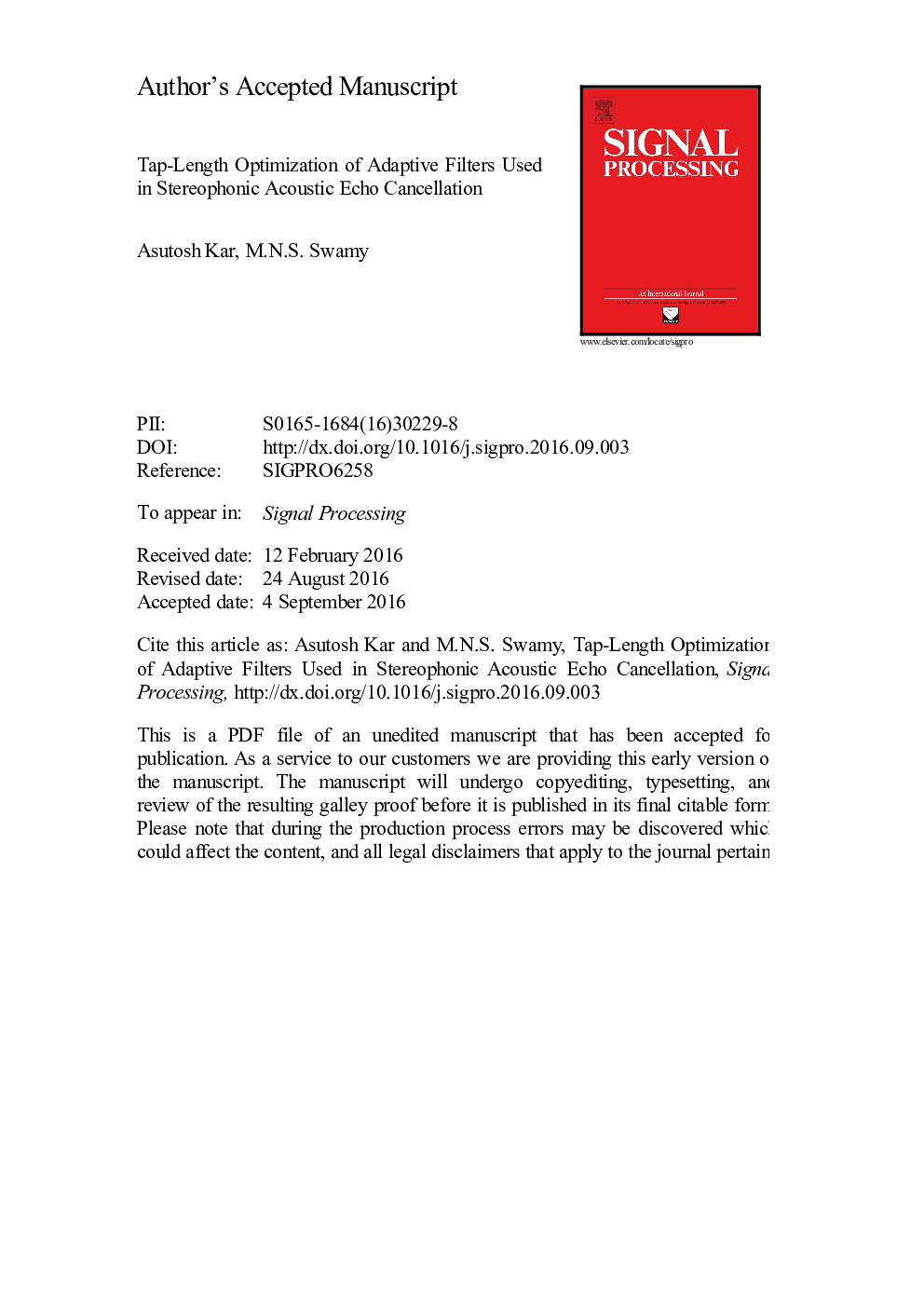| Article ID | Journal | Published Year | Pages | File Type |
|---|---|---|---|---|
| 6958085 | Signal Processing | 2017 | 29 Pages |
Abstract
An adaptive filter with a large number of weights or taps is necessary for stereophonic acoustic echo cancellation (SAEC), depending on the room impulse response and acoustic path where the cancellation is performed. However, a large tap-length results in slow convergence and increases the complexity of the tapped delay line structure for FIR adaptive filters. To overcome this problem, there is a need for an optimum tap-length-estimation algorithm that provides better convergence for the adaptive filters used in SAEC. This paper presents a solution to the problem of balancing convergence and steady-state performance of long length adaptive filters used for SAEC by proposing a new tap-length-optimization algorithm. The optimum tap length and step size of the adaptive filter are derived considering an impulse response with an exponentially-decaying envelope, which models a wide range of acoustic echo paths. The tap-length optimization is applied to a single long adaptive filter with thousands of coefficients to decrease the total number of weights, which in turn reduces the computational load. To further increase the convergence rate, the proposed tap-length-optimization algorithm is applied to an existing multiple sub-filter-based echo canceller, for which we present a convergence analysis. Computer simulations are also presented, comparing the proposed approach with related work.
Related Topics
Physical Sciences and Engineering
Computer Science
Signal Processing
Authors
Asutosh Kar, M.N.S. Swamy,
